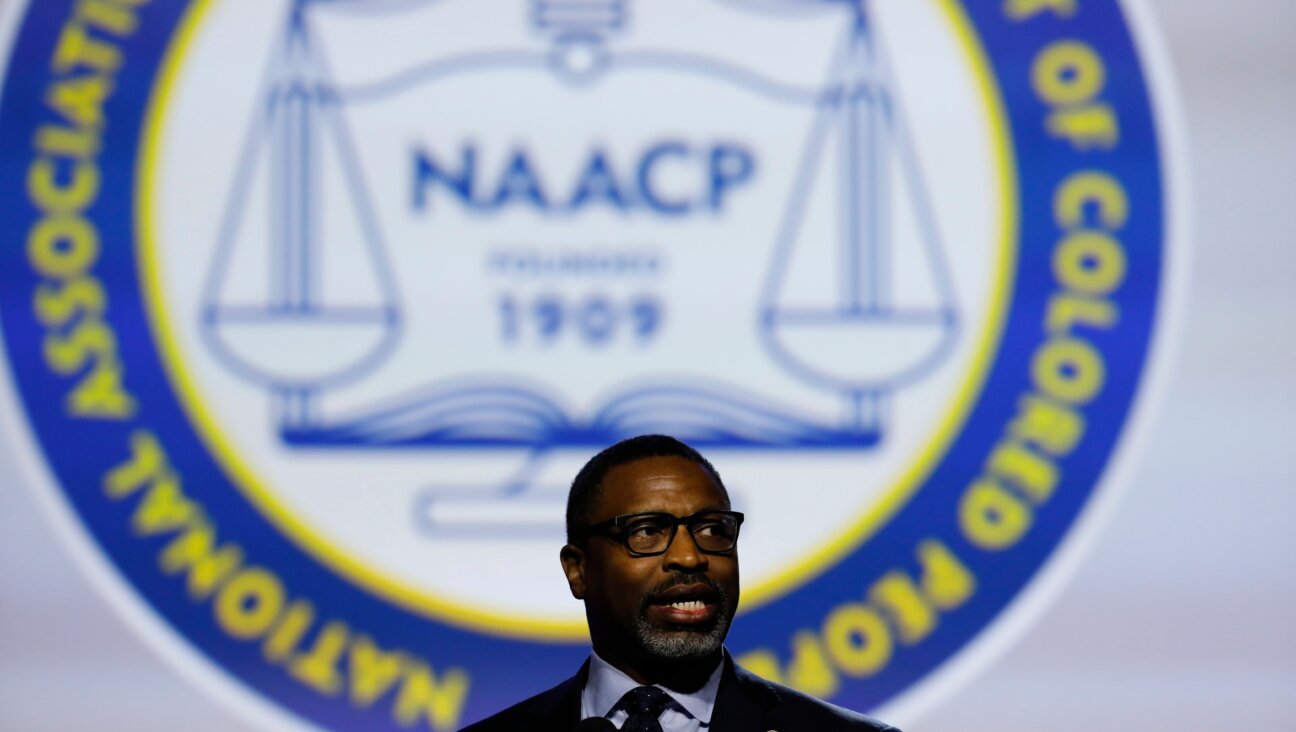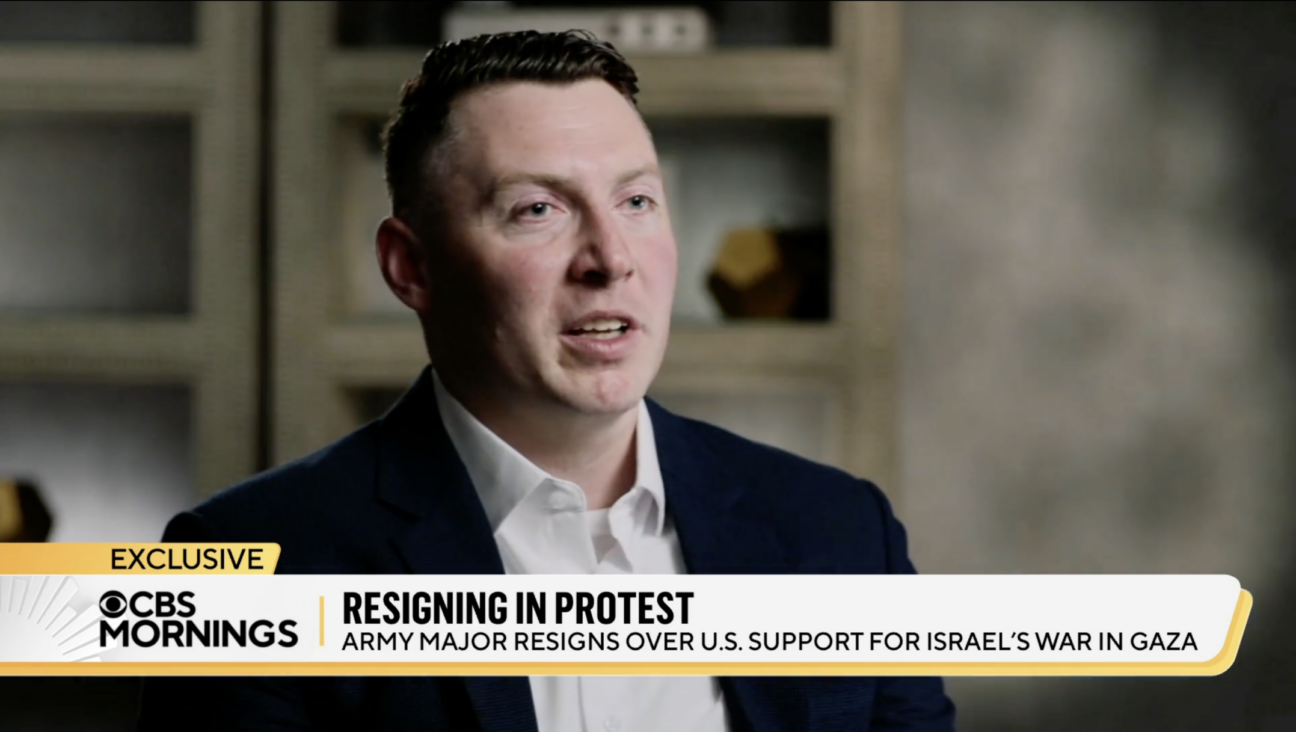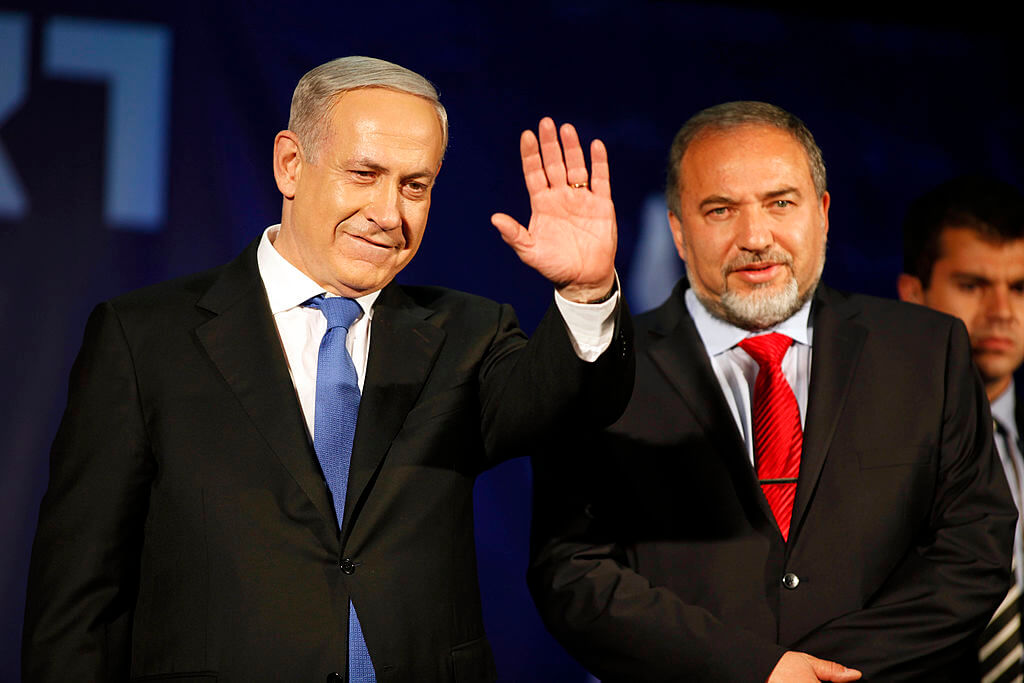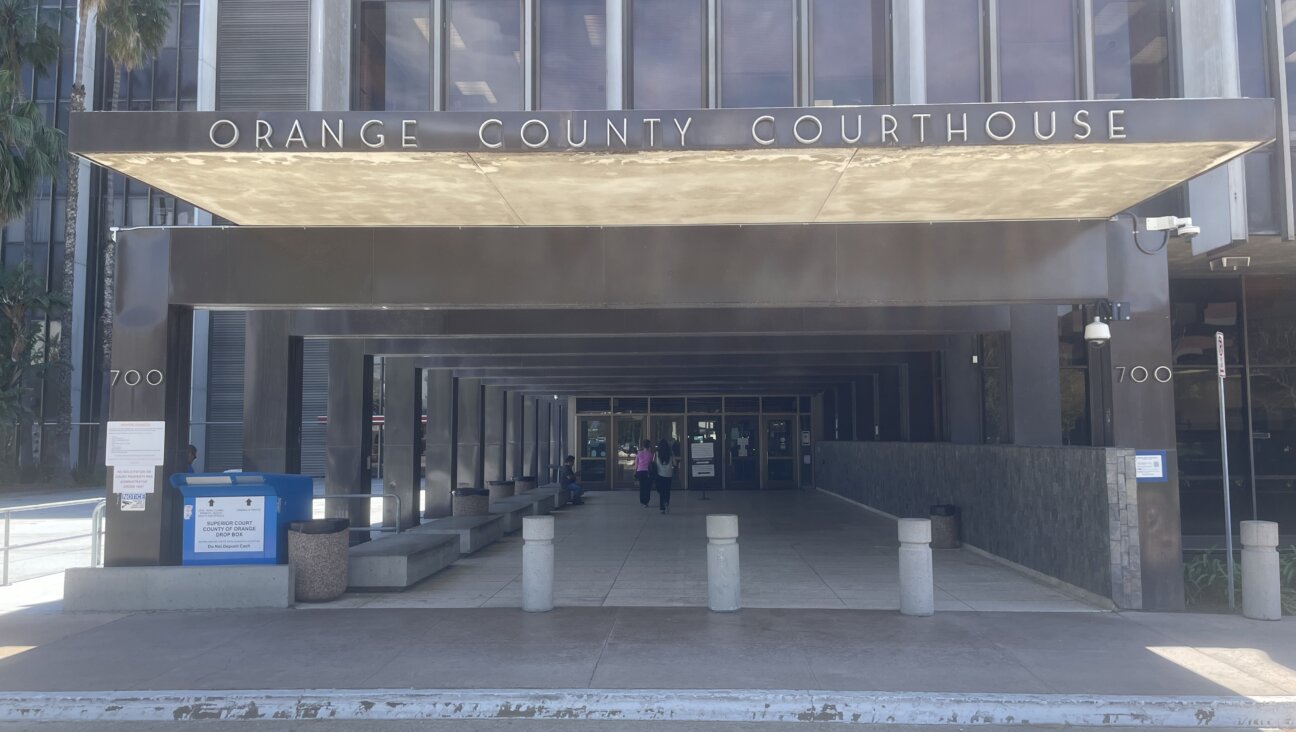Bereft and Healing, a Father Returns Home to Gaza
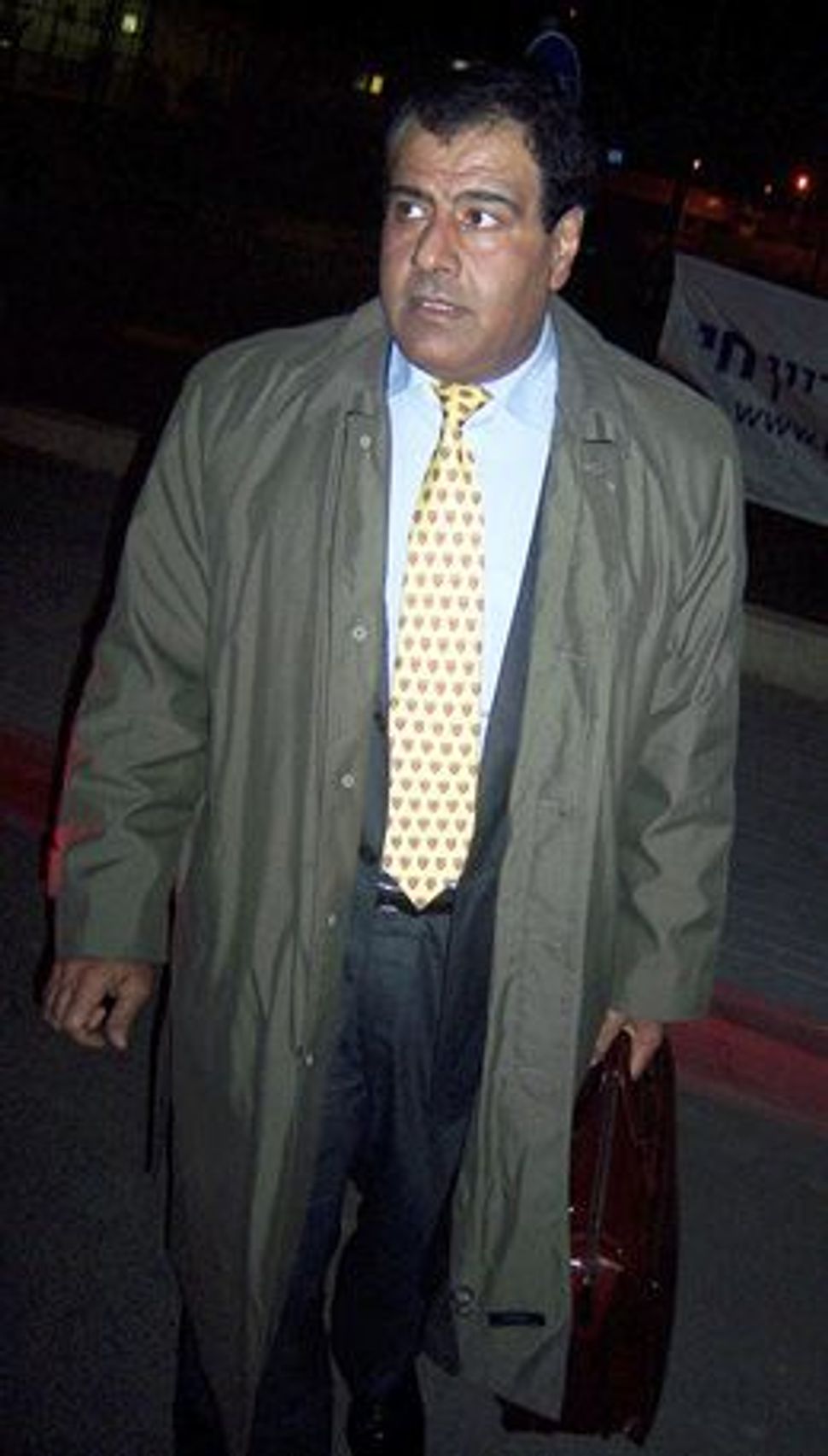
One Year Later: Izzeldin Abuelaish Image by NATHAN JEFFAY

Operation Cast Lead: Israeli fire hit many civilian targets during the military campaign in Gaza last year. The reasons for the civilian casualties are disputed. Image by Getty Images
“The blood of my daughters was a price that saved others’ lives,” said Dr. Izzeldin Abuelaish. One year later, the Gaza physician is trying to make sense of the deaths of his children, killed by Israeli missiles during Israel’s military campaign.
The circumstances that brought on those missiles remain in dispute. But now, Abuelaish, whose unstinting outreach to Israelis before and during that campaign brought the suffering of Palestinian civilians home to many, is returning to visit the Palestinian territory where he used to live.
On January 16, 2009, the world learned of Abuelaish’s tragedy in dramatic fashion. Long involved in medical work in both Gaza and Israel, Abuelaish called a journalist-acquaintance who was broadcasting live on Israeli television to tell him that the army had just attacked his home.
In real time, viewers heard what Abuelaish had to say about three of his daughters, 20-year-old Bisan, 15-year-old Mayar and 13-year-old Aya.
“They died on the spot — on the spot, Shlomi… Oh Lord, God, God, God!”
A fourth daughter, 17-year-old Shadah, was badly injured. On hearing the man’s cries of pain, then-Israeli Prime Minister Ehud Olmert said he wept.

One Year Later: Izzeldin Abuelaish Image by NATHAN JEFFAY
One year has passed since Operation Cast Lead, the controversial military campaign Israel launched into Gaza to stop rocket attacks by militants into Israel’s south.
On January 12, Abuelaish took a taxi ride from Tel Aviv to the Israel-Gaza border, the final leg of an emotional journey back home, back to his old life after fleeing Gaza for Canada.
Even as he approached the border, the final hurdle between him and an anniversary visit to the graves of his daughters, the impeccably dressed doctor was calm and philosophical. “I fully believe that what is from God is good, everything from God always is for good, it has a reason,” he said.
“You may dislike, that’s what I learned from my [Muslim] faith, you may dislike something, but at the end you realize it was for good and you may like something and you see it wasn’t good.”
Abuelaish now lives in Toronto and has a professorship in global health at the University of Toronto. The journey back to Gaza was his first since he left in July, and this is the only face-to-face newspaper interview he gave during his short stay in Israel on the way.
Abuelaish voiced concern about what sights were in store for him in Gaza, including homelessness and poverty resulting from the military campaign. Day-to-day life is crippled by the comprehensive blockade imposed by Israel and Egypt, and the continued governance of Hamas, which many consider a terrorist organization.
As for his personal story, Abuelaish’s initial anger has given way to belief. He now speaks of his daughters not as “victims” but as people who were “selected.”
The selection, he believes, was divine, and he considers the reason obvious. “Why was I saved and why they were selected for that?” he asks, immediately providing his answer — that it was to persuade Israelis and humanity in general to “think of saving lives, not putting an end to someone’s life.”
Abuelaish reasons that before the attack on his family, the Israeli public focused on Hamas rockets in southern Israel, and on the worries and successes of the military campaign. But his tragedy, as that of a doctor renowned for advocating peace, working part-time in Israel and living his heartbreak on television, spurred Israelis to confront Palestinian suffering. “It opened the eyes and the minds and the hearts of the Israeli public,” he said. “It showed, it symbolized, the craziness of this war.”
Abuelaish thinks that the attack placed Palestinian suffering on the Israeli and international agenda, and had an immediate effect: The next day then-Prime Minister Olmert announced a unilateral ceasefire. Israel has never publicized a connection to his tragedy, but Abuelaish is sure that it was cause and effect. “Olmert announced the unilateral ceasefire after he saw what happened, so it saved lives,” Abuelaish said.
The Israeli army considers the Abuelaish girls to have been casualties of Hamas’s tactic of fighting from among civilians. The army claims that soldiers saw suspicious figures on the third floor of the building, which is where the girls were, and believed the figures were fighters observing Israeli forces in order to direct sniper fire from another building — a method that they say Hamas used during the operation. It also stresses that the family was urged to leave its house, which was in the combat zone, days before the incident.
But the doctor said at the time that he had nowhere else to go and insisted that no snipers were in the area. He has held ever since the attack that the army should admit it made a mistake. He believes that the Ministry of Defense has a moral obligation to give him an apology. He also thinks it has an obligation to compensate him financially for his loss, and his lawyer is starting to put together a case that may end up in Israel’s Supreme Court.
If he is successful, Abuelaish says, any money he is awarded will go to an international foundation that he has established called Daughters for Life, which is raising funds to enable women across the Middle East to attend university. He hopes that the foundation will award its first grants in a year, and has an ambitious five-year plan to open the equivalent of an American liberal arts college plus a high school for academically gifted young women from Israel, the Palestinian territories, Jordan, Syria, Lebanon and Egypt.
He hopes that political factors will permit the campus to be located in Gaza so that Palestinians who have been denied so much will have access to education and ultimately the means to give back to society. His dream is for the school to educate a new generation of “enlightened” women, graduates who can one day negotiate a lasting peace for the region.
Meanwhile, life in Toronto is busy for Abuelaish. In addition to his academic responsibilities and his work for Daughters for Life, he takes care of his five surviving children. At the time they lost their sisters, they were still reeling from the death of their mother, Nadia — his wife — who had died from leukemia just four months earlier.
But all are coping well, he says, including Shadah, the seriously injured 17-year-old. Beaming with pride, he said that she returned to school after three months in recovery, and just three months later sat for her high school exit exams. Shadah scored 95.5%, he notes proudly, and is now studying engineering at the University of Toronto.
Abuelaish is also raising funds for an Israeli institution. At the end of January he will travel to Germany to seek money to build a conference facility at Sheba Medical Center, near Tel Aviv. He envisions a project that will be named in memory of his daughters. For several years Abuelaish worked at Sheba part-time on fertility research and treatment projects.
Asked whether it was difficult to start raising money for an Israeli institution after his experience, Abuelaish replied that humanitarian cooperation across national divides is the essence of his message. “This hospital is the place where everything melts,” he said. “There is diversity, and everyone is equal — Palestinians, Jews, Christians, Muslims, Druze. All are equal, and that is a message we can learn from medicine — the message of equality and justice.
“In the end [the conference facility] will help human beings there, it will help sick patients, and this hospital serves Palestinians and Israelis and we must promote more collaboration, more partnership,” he explained.
Contact Nathan Jeffay at [email protected]
The Forward is free to read, but it isn’t free to produce

I hope you appreciated this article. Before you go, I’d like to ask you to please support the Forward.
Now more than ever, American Jews need independent news they can trust, with reporting driven by truth, not ideology. We serve you, not any ideological agenda.
At a time when other newsrooms are closing or cutting back, the Forward has removed its paywall and invested additional resources to report on the ground from Israel and around the U.S. on the impact of the war, rising antisemitism and polarized discourse.
This is a great time to support independent Jewish journalism you rely on. Make a gift today!
— Rachel Fishman Feddersen, Publisher and CEO
Support our mission to tell the Jewish story fully and fairly.
Most Popular
- 1

Fast Forward Ye debuts ‘Heil Hitler’ music video that includes a sample of a Hitler speech
- 2

Opinion It looks like Israel totally underestimated Trump
- 3

Culture Is Pope Leo Jewish? Ask his distant cousins — like me
- 4

Fast Forward Student suspended for ‘F— the Jews’ video defends himself on antisemitic podcast
In Case You Missed It
-

News In Edan Alexander’s hometown in New Jersey, months of fear and anguish give way to joy and relief
-

Fast Forward What’s next for suspended student who posted ‘F— the Jews’ video? An alt-right media tour
-

Opinion Despite Netanyahu, Edan Alexander is finally free
-

Opinion A judge just released another pro-Palestinian activist. Here’s why that’s good for the Jews
-
Shop the Forward Store
100% of profits support our journalism
Republish This Story
Please read before republishing
We’re happy to make this story available to republish for free, unless it originated with JTA, Haaretz or another publication (as indicated on the article) and as long as you follow our guidelines.
You must comply with the following:
- Credit the Forward
- Retain our pixel
- Preserve our canonical link in Google search
- Add a noindex tag in Google search
See our full guidelines for more information, and this guide for detail about canonical URLs.
To republish, copy the HTML by clicking on the yellow button to the right; it includes our tracking pixel, all paragraph styles and hyperlinks, the author byline and credit to the Forward. It does not include images; to avoid copyright violations, you must add them manually, following our guidelines. Please email us at [email protected], subject line “republish,” with any questions or to let us know what stories you’re picking up.







